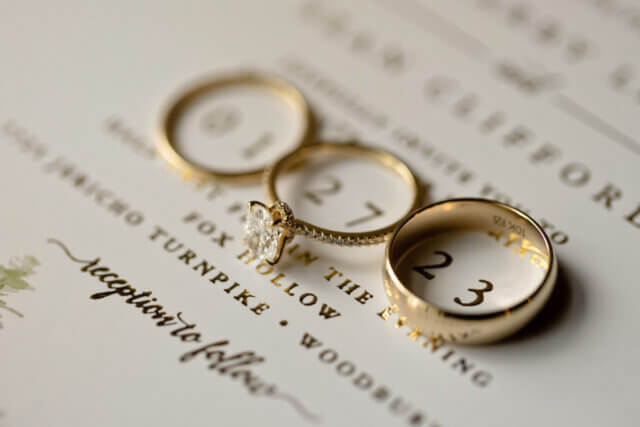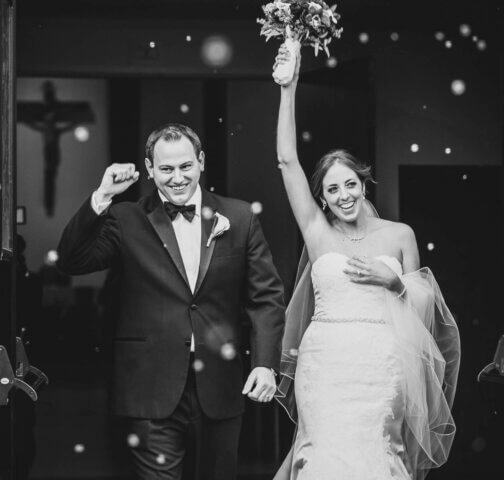The wedding is the main event, but don’t forget the engagement party, the rehearsal dinner, and the bachelorette…the list goes on. So, who pays for what in a wedding? Here’s who foots the bill, according to traditional etiquette.

Image courtesy of EXO Photography
Your engagement is such an exciting time – not only because you’re deep into wedding planning, but also because of the fun events leading up to the big day. Between engagement parties, bridal showers, bachelorette parties, and the of course the main event, you may start to wonder – who pays for what in a wedding? Should you be covering most of the costs? Should your parents be paying for the wedding AND the engagement party?
The truth of the matter is, a lot of time-old “traditions” are a thing of the past. We live in a very different world than we did 50, 40, or even 30 years ago. While etiquette norms do dictate certain financial responsibilities when it comes to weddings, the reality is that there’s no “right” way to fund your wedding events. It’s entirely based on each couple’s (and their families’ and friends’) situations.
With that being said, here are the traditional financial responsibilities for you, your family, and your bridal party. But remember – most weddings today stray from these guidelines at least a little.
Events leading up to the wedding
Engagement party: the bride and her family
Bridal shower: the host of the shower, which is traditionally either the relatives of the bride (like aunts or cousins) or the Maid of Honor. Most of the time, this expense is split between multiple people (i.e., other members of the bridal party, the bride’s mother, etc.)
Bachelor/Bachelorette party: the members of the bridal party
Rehearsal dinner: the groom’s family

Image courtesy of Angel Project Studio
The wedding day
The bride’s family is responsible for: Ceremony venue. reception venue; bride’s attire; flowers and decor; wedding cake; photography and videography; transportation/lodging for bridesmaids
The groom’s family is responsible for: marriage license and officiant; bride’s bouquet, boutonnières, and corsages; transportation/lodging for groomsmen; DJ/band.
The bride is responsible for: bridesmaids’ dresses; bridesmaids’ hair and makeup; groom’s wedding band; wedding gifts for groom, bridesmaids, and parents
The groom is responsible for: engagement ring and wedding band for the bride; groom’s attire; groomsmen attire, gifts for the groomsmen and bride

Image courtesy of Solaris Photo & Film
After the wedding
Morning after brunch: the bride’s family
Honeymoon and associated costs: the groom’s family
Paying for your wedding
Before you begin planning, it’s important to sit down with your fiancé and both of your families to discuss realistic budgets and contributions. Traditional etiquette is nice in some instances, but it isn’t the law. If your fiancé’s family wants to pay for more than they’re expected, let them! On the flip side, if they’d put themselves into mountains of debt trying to host a rehearsal dinner, brainstorm an alternative.
Traditional etiquette also doesn’t account for two brides getting married, or two grooms getting married. So, again – more reason to throw “tradition” out the window and plan your day in a way that works for you!
